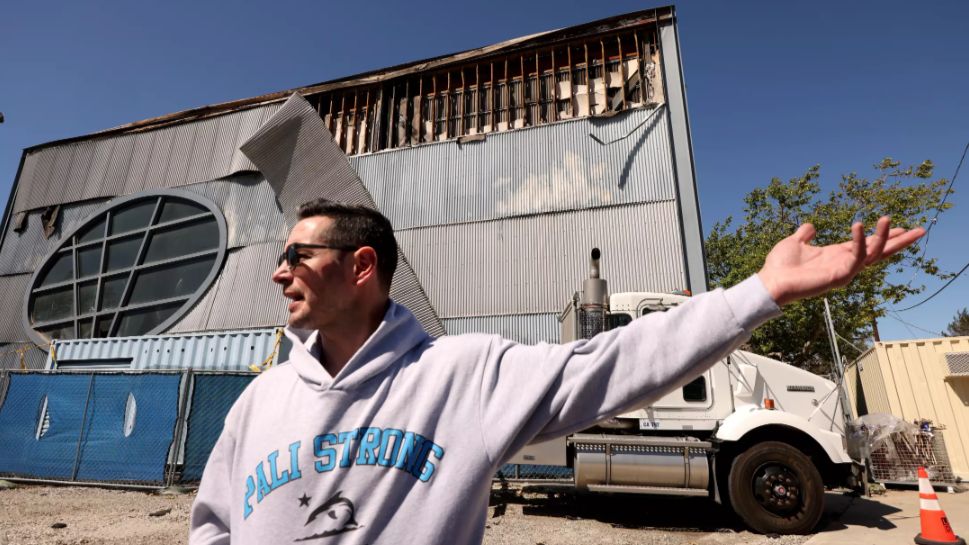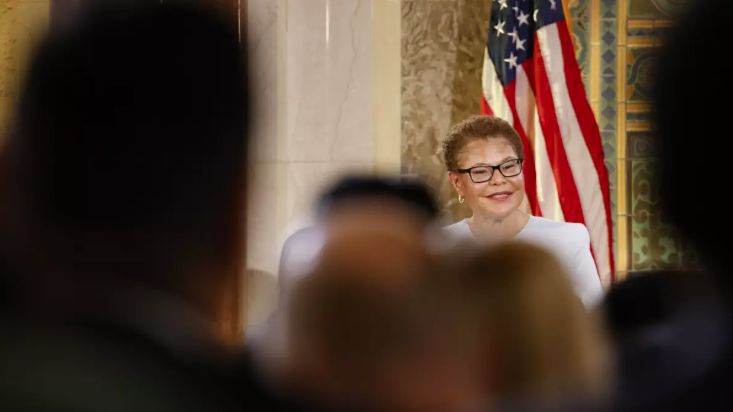Real estate heir Robert Durst has spent the past 40 years as a murder suspect accused of killing three different people. But, after decades of suspicion, the legal saga was brought to a close after an LA County jury found the 78-year-old millionaire guilty of killing his friend Susan Berman to cover up the disappearance of his first wife. Staff writer James Queally covered the trial and joined LA Times Today host Lisa McRee with the story.
Durst's wife, Kathy, first vanished in 1982 in South Salem, New York. Then in 2000, he was accused of killing his best friend, Susan Berman, who was found shot to death in her home in Benedict Canyon, in Los Angeles. Then a year later, he was accused of shooting his neighbor, a man named Morris Black, when he was living in Galveston, Texas.
"Durst was trying to get away from the tabloid fervor around Burman's murder," Queally said. "He is accused of shooting Black, dismembering his body and throwing it in the Galveston Bay in Texas. That was the first time he was tried for homicide. Despite admitting to killing Black, despite admitting to carving his body in pieces, he was actually acquitted in self-defense."
Durst's decision to participate in "The Jinx," an HBO documentary series about the disappearance and death of these women, played a large role in the decision to charge him with murder.
"I imagine most of our viewers, myself included, first heard of Robert Durst through "The Jinx." It was filmed by a man named Andrew Jarecki, and the documentary gained Durst's attention and made him open to doing interviews for that case," Queally said. "Many people believe he helped talk himself into trial by doing those interviews. He is confronted in the final scene of that documentary with a piece of evidence, a letter he had allegedly written to Susan Berman in 1999, which had a very particular misspelling of the word Beverly. As many of you probalby know a note was sent to the Beverly Hills Police Department, a so called cadaver note as it's referenced throughout the trial, alerting police to the presence of Ms. Berman's body. It also had similar handwriting to the 1999 letter that Durst wrote to Berman and had the exact same misspellings. In the final scene, he walks away from the interview, goes into a bathroom, supposedly unaware that he is being recorded, and mutters two seemingly damning phrases "what the hell did I do," and "kill them all." The defense argued throughout the trial that the audio was cut together and edited, but those two phrases have been inseparable from his life for six years."
According to Queally, Durst's case was handled very slowly and deliberately.
"So, they went through the entirety of Durst's relationship with his first wife, detailed timeline, detail of his movements, behaviors after her disappearance, the state of their marriage and allegations of domestic violence that were levied against him in that case," Queally said. "Then they moved through his entire relationship with Berman, his movements around California around those days before and days following her killing. And, they went through what happened in Texas. Overall, it was a reexamination of his entire existence as it relates to the three cases."
When Durst's conviction was read, he was not in the courtroom because he had been exposed to COVID-19, but Queally says some of the victims' families spoke out about the verdict.
"The relatives of Durst's first wife, Kathy, have spoken out, and they have been championing the idea that he should now stand trial again with this case," Queally said. "He, faces pretty much, automatically must be sentenced to life without parole over here because he was not only convicted of murder and special circumstance allegation that he lay in wait, and killed Berman because she was a witness to a crime."
Watch "LA Times Today" at 7 and 10 p.m. Monday through Friday on Spectrum News 1 and the Spectrum News app.










